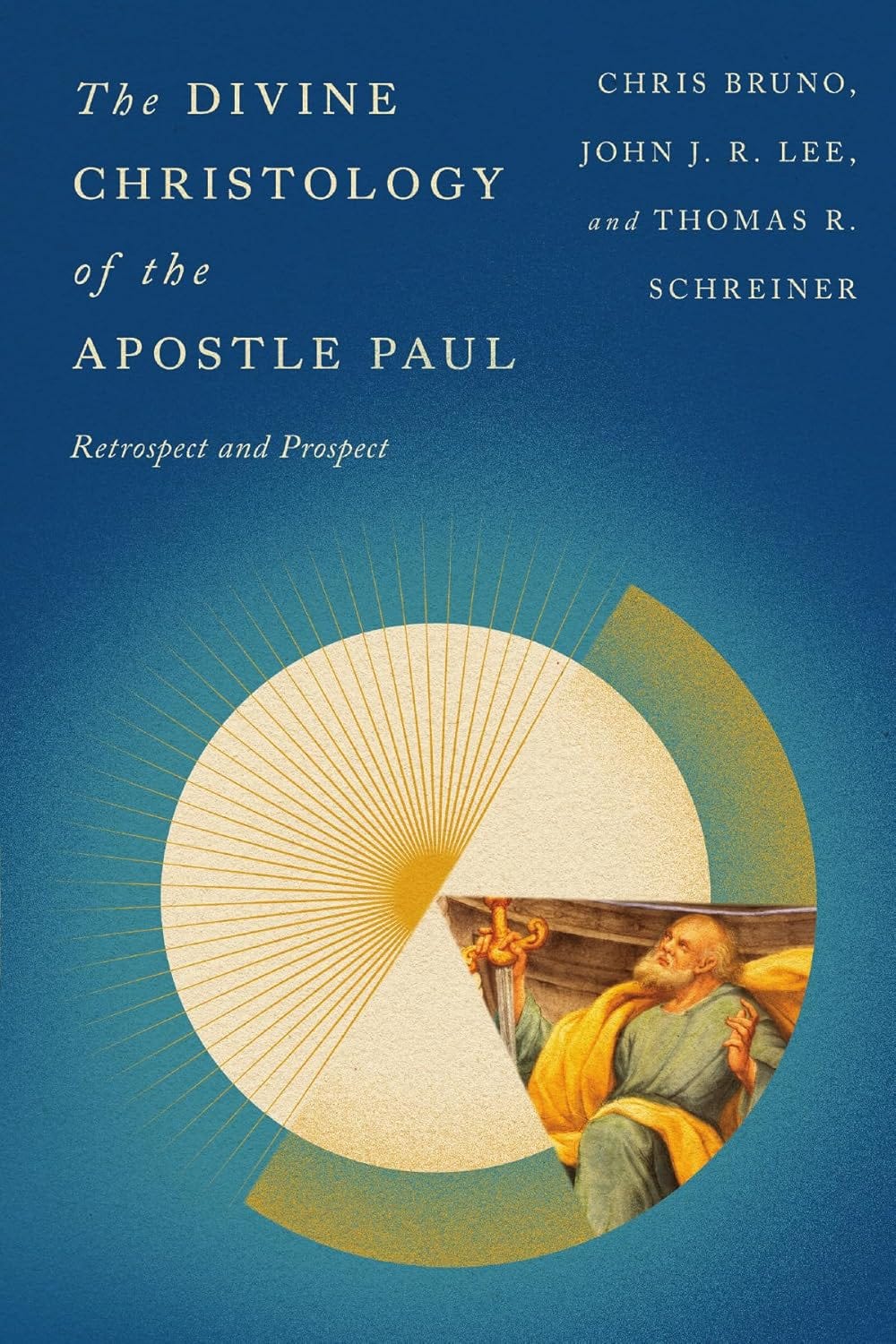New Book: The Divine Christology of the Apostle Paul (IVP)
Written by Chris Bruno, John J.R. Lee and Thomas Schreiner
New Book: The Divine Christology of the Apostle Paul (IVP)
I got a fun new book in the mail this week, The Divine Christology of the Apostle Paul (Chris Bruno, John J.R. Lee, and Tom Schreiner; IVP). Christology is a theological topic of perennial interest, and there have been fruitful conversations in biblical studies (and related fields) in recent decades about whether Paul thought Jesus was the supreme God or how he squared away a “divine” Christology with his commitment to Jewish monotheism (e.g., 1 Cor 8:3). In this book, the authors examine critically recent scholarship on this subject. In fact, they devote whole chapters to summarizing and discussing the works of:
Richard Bauckham (“The Divine Identity Paradigm”)
Larry Hurtado (“The Corporate Worship Paradigm”)
Chris Tilling (“The Christ-Relation Paradigm”)
N.T. Wright (“The YHWH’s Return Paradigm”)
There are two main parts to the book. The first part is comprised of discussions of the works of these modern scholars. The second part is exegetical study of the key texts related to divine Christology where the authors critically engage these influential paradigms. There is an “Afterword” by Schreiner.
In Appendix I, the authors engage more briefly the works of some more recent scholarship, including the approaches taken by David Capes, Gordon Fee, Crispin-Fletcher Louis, Matt Novenson, Josh Jipp, Ruben Bühner, Matt Bates, and Wesley Hill. They also tip their hats to the work of Michael Bird, Doug Campbell, Leander Keck, Dick Longenecker, Peter Orr, Andrew Ter Ern Loke, and Geurt Hendrik Van Kooten (aka “George Van Kooten”).
I love these kinds of books that give readers clear categories and frameworks, and helpful summaries and key works and quotes from the leading scholars. Clearly, the book is well thought-out, and the authors are critical and incisive without being hostile or dismissive.
If I’m being picky, I would make the following comments.
#1: The Appendix on “Other notable contributors” felt buried in the backmatter, I would have moved it into the main text, perhaps towards the end of Part One and before their exegetical section (Part Two).
#2: The scholars chosen for study happen to all be male and white Westerners. I get that the authors wanted to address the most influential scholars—and overall they chose wisely—but not including any women and/or scholars of color or global South scholars seems like a major opportunity missed to widen the conversation. It would have been interesting to engage with someone like Teresa Morgan, or Adela Collins, or Susan Eastman, or Beverly Gaventa.
#3: I know this book is about the narrow topic of arguments in favor of divine Christology, but I have to say I was disappointed not to see a chapter dedicated to James D.G. Dunn. Dunn is referenced every now and again, but his Christology in the Making left a big impact in the 20th century, and his more recent book Did the First Christians Worship Jesus? (2010) is well worth reading—I learned immensely from it, even if I didn’t agree with Dunn’s final conclusion. Furthermore, this book could have engaged with Bart Ehrman’s work, even if to refute it cogently.
But, all in all, this is an excellent book that I will be recommending to my students as they become acquainted with NT scholarship trends and conversations in Christology. Highly recommended!




